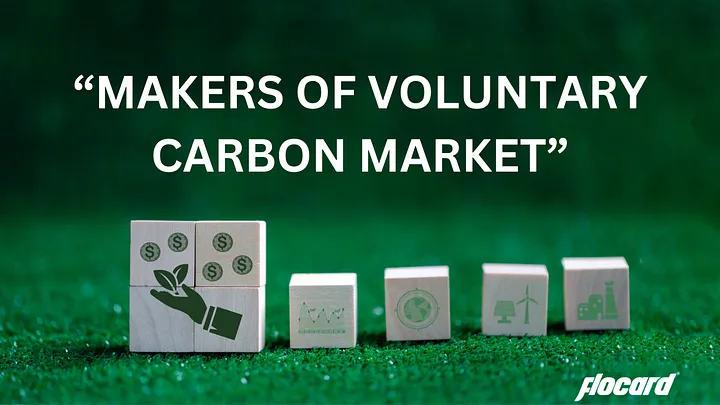The Architects of Eco-Innovation: Inside the Voluntary Carbon Market's Evolution

Green Synergy: The Transformative Power of the Voluntary Carbon Market
Tackling Climate Change Through Market Forces
Climate change, one of the most pressing environmental issues of our time, requires international cooperation for mitigation. A creative solution is the emergence of voluntary carbon markets. These markets allow individuals and organizations to purchase carbon credits, offsetting their emissions. Offering significant social and environmental co-benefits, the voluntary carbon market provides a way to measure and price greenhouse gas emission reductions outside of legally enforceable reduction objectives.
The Catalysts of the Market: Key Stakeholders
Collaboration among various actors is crucial in combating climate change, and the voluntary carbon market is shaped by many of these stakeholders. From investors and consumers to project developers, everyone plays a role in building a sustainable future.
Setting the Standard: The Backbone of Carbon Offset
Carbon offset criteria largely shape the voluntary carbon market. They set standards for carbon reduction projects, enabling the trade of carbon credits. Popular standards include the Verified Carbon Standard, Gold Standard, and Climate, Community, and Biodiversity Standards. These ensure project transparency, quality, and environmental integrity, serving as guidelines for project inception and execution.
The Process Unveiled: Verifying Carbon Offsets
- Audit planning.
- Project site visits.
- Assessing compliance with GS4GG's Principles & Requirements.
- Issuing Validation or Verification Reports. If the VVB (Verification and validation body) gives a positive opinion, further review by Sustain CERT, NGO Supporters, and GS4GG's Technical Advisory Committee (TAC) follows. The outcome of these reviews, combined with the VVB's report, determines GS4GG certification eligibility. Click here to learn more.
Project Developers: The Pioneers of Carbon Reduction
Project developers are responsible for locating, creating, and implementing carbon reduction programs. They choose appropriate strategies like waste management, forestry, renewable energy, and land use management, ensuring these initiatives offer verifiable emission reductions, are economically viable, and comply with carbon offset standards. These projects provide local carbon emission reductions along with social and environmental co-benefits.
Investors: Fueling the Carbon Market's Growth
Investors are vital, providing capital for carbon offset projects. They finance projects, setting criteria to generate tradable carbon credits. These investors can be companies, individuals, or governments, influencing project types and emission reduction strategies.
Buyers: The Driving Force of the Market
Buyers, including individuals and organizations, purchase carbon credits to offset their emissions. Their commitment to reducing their carbon footprint and supporting sustainable development influences the carbon credit market. Buyers' demand affects pricing and marketing strategies.
Trading Platforms: The Marketplace for Carbon Credits
Marketplaces and trading platforms are essential, offering an open pricing system for carbon credit transactions. They provide reliable means for buyers to purchase credits and for project developers to sell them. Prominent platforms include the Carbon Market Institute, Credible Carbon, and Carbon Trade Exchange.
Advocates for Change: NGOs and Industry Associations
NGOs and industry associations champion voluntary carbon markets, influencing policies, directing best practices, and ensuring carbon offsets lead to significant ecosystem improvements or verifiable greenhouse gas emission reductions.
United for a Sustainable Future
The voluntary carbon market is a beacon of hope in the climate change battle, depending on the collective effort of all stakeholders. It's encouraging to see diverse actors uniting to ensure the market's credibility, effectiveness, and sustainability.
More efforts are needed to combat climate change, with the voluntary carbon market playing a key role. We urge participation in this market, whether as a buyer, investor, or project developer. Each action is critical in this collective fight.
FloCard is committed to making a difference by enabling our clients to offset their carbon footprint through high-quality carbon credits from credible projects. Individuals, businesses, and organizations have the power to enact change. Join us in this sustainable journey towards a better future.
Join the Movement
Join us in embracing sustainable living and fighting climate change. Participate in the voluntary carbon market with FloCard, and together, let's build a brighter future for our planet.
